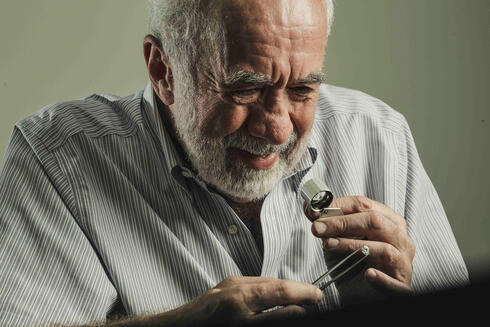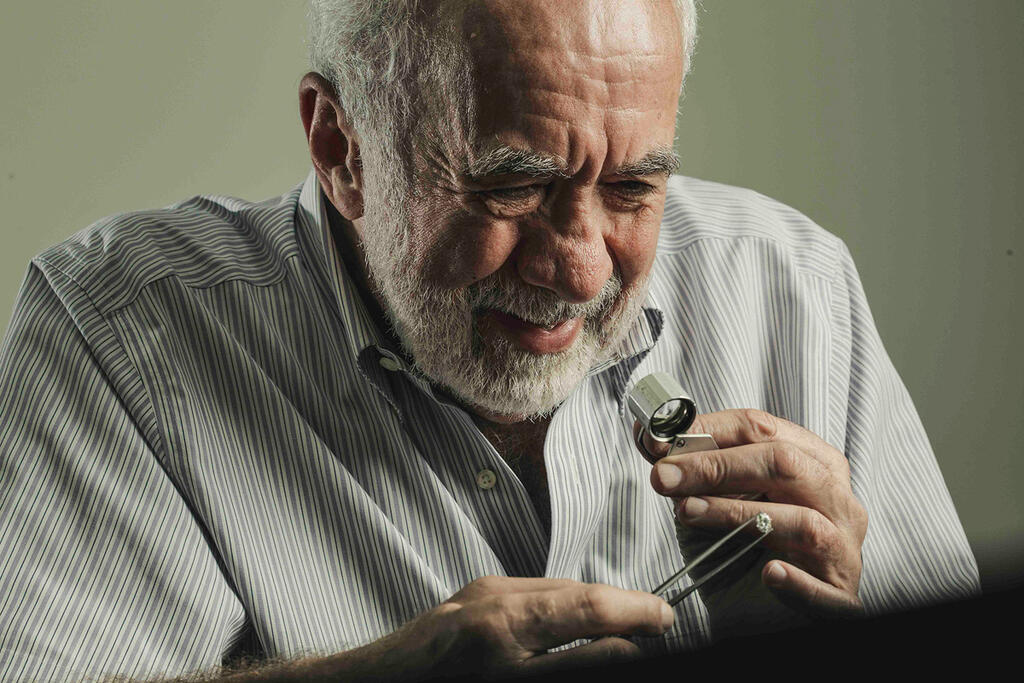
From $152M in investments to a $2.5M sale: Lusix’s lab-diamond dream comes to a bitter end
After losing $65 million in two years, Benny Landa’s lab-grown diamond company is set to be acquired by Japanese firm EDP.
Benny Landa's lab-grown diamond company, Lusix, will be sold for only NIS 9.5 million (approximately $2.5 million) to Japanese investor Naoji Fujimori, owner of the publicly traded Japanese company EDP, which produces the seeds needed for lab-grown diamond production. The Japanese investor has committed to employing 20 of Lusix's employees and continuing its operations in Israel.
If the court approves the sale, it will mark a disappointing end for a company that lost $65 million in the last two years, despite receiving $152.5 million in investments since its establishment in 2016. Shay Bar Nir, the court-appointed trustee for Lusix, is seeking approval for the sale to Fujimori’s company, after conducting a bidding process with another potential buyer, whose offer was 25% higher. The Japanese proposal includes 36 payments of NIS 238,000 each ($64,000), along with an immediate payment of NIS 950,000 ($257,000) in cash. Unfortunately, most of Lusix’s employees, represented by attorney Ofir Ronan, will be laid off.
Bar Nir noted that the challenging situation in Israel made it difficult to attract investors to Lusix, which had accumulated NIS 103 million ($28M) in debt. Even interested investors struggled to visit Israel due to the current circumstances. Given these challenges, Bar Nir wrote that it was impossible to continue searching for additional buyers, and that the sale and transfer of the company’s assets must proceed quickly.
Benny Landa invested in Lusix on his own until 2020, when the company raised $90 million from prominent investors including Louis Vuitton, More Investment House, Ragnar, and others. Landa, who holds 25% of the shares, invested $47.5 million, while More Investment House invested $25 million, giving it a 17.5% stake (some in equity and some in debt).
In October 2023, against the backdrop of a sharp drop in lab-grown diamond prices due to increased competition, Lusix conducted an emergency fundraising round of $15 million at a valuation of just $5 million. Some shareholders participated in the round, along with new investors such as Dudi Weissman, owner of Sonol, through a private company; the venture capital fund Geffen Capital; and Aharon Frenkel, through a company registered in Malta. However, these investments will likely be lost, as the sale proceeds will go toward covering Lusix’s debts. The company currently has only NIS 1.8 million remaining in its coffers.
In a request for a stay of proceedings submitted to the court in August, Lusix stated that it began selling rough diamonds in 2019 and became profitable in 2020. However, by June 2022, the prices of lab-grown diamonds had fallen by about 90%, due to increased competition and the lingering effects of the COVID-19 pandemic.
According to the filing, as of today, Lusix employs just over 20 workers, after laying off around 60 employees a month ago. Others resigned voluntarily or were called to reserve duty. The company also took on bank financing during 2021-2023, registering liens on its assets. Lusix estimated its total debt at NIS 103 million, including NIS 31 million owed to Leumi and Discount Banks, NIS 23 million to suppliers, and NIS 3 million to government agencies, including Israel’s Chief Scientist. Additional claims totaling NIS 62 million, and a further creditor’s claim of NIS 99 million, were submitted to the trustee, Bar Nir noted.
An important point highlighted by Bar Nir contradicts Lusix’s previous statement that it sought a debt settlement and that its shareholders were willing to invest further capital. "From conversations I had with the shareholders, it became clear that they do not intend to make any additional investments in the company," he wrote.
Benny Landa, who made his initial fortune by selling the digital printing company Indigo to HP Global in 2002 for $830 million, and who now owns Landa Printing, told Calcalist when the request for a stay of proceedings was submitted: "Lusix was established to bring leadership in the diamond sector back to Israel. There is no shame in trying and reaching this point. I am very proud of the company and hope it will find a new path forward."















